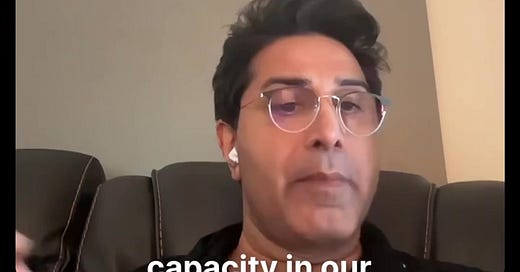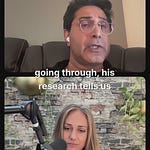In the latest episode of Deconstruction, I had the honour of sitting down with Saj Razvi, founder of Psychedelic Somatic Interactional Psychotherapy (PSIP), to explore a revolutionary approach to healing trauma in the psychedelic state.
PSIP is not your typical trauma modality. It’s interactive and relational, designed to address the deepest layers of human wounding—those formed in early life through attachment ruptures and relational pain. By engaging with the body’s self-correcting mechanisms, this approach invites us into a process of regression that allows for profound reworking of core self and attachment wounds.
The process is not easy. It requires courage, presence, and support, as it touches on some of the most tender and numbed parts of ourselves. But it’s also transformative. PSIP aims to help us reclaim what has been lost to trauma so we can live a more open-hearted, connected, and empathetic life.
Our discussion with Saj touched on many essential aspects of this work, including:
• Secure Attachment and Its Lifelong Impact: How early relational patterns shape our capacity to trust, love, and feel safe in the world.
• The Transpersonal Psychedelic Experience: What it means to approach therapy as a spiritual and psychological journey.
• Preparation, Resourcing, and Relational Tethers: The tools and structures needed to support this profound work.
• Negative Transference and Ethical Considerations: The complexities of relational dynamics within the therapeutic container.
Why This Matters
Trauma has a way of numbing us, fragmenting parts of ourselves we desperately need to live fully. Traditional talk therapy often can’t reach the places where this fragmentation lives—deep in the body, the nervous system, and the subconscious.
PSIP offers a bridge, one that reconnects us with those lost parts, rewires our relational patterns, and helps us live more embodied and connected lives. It’s a path that invites us to feel deeply again, not just for ourselves but for others too.
What parts of yourself have felt “numbed” or disconnected by trauma? What might it feel like to reclaim them?











Share this post